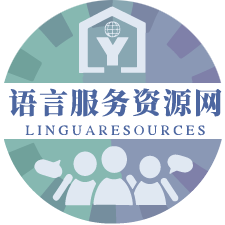Translating Children’s Non-Fiction Books
Fri, Sep 27, 2024 6:00 PM – 7:00 PM CST
In this webinar, Josephine Murray will cover the joys and challenges of translating children’s non-fiction books. She will cover practical elements of literary translation such as negotiating contracts and working with editors, as well as translation strategies such as culturally specific references, working with illustrations and the importance of research, and how these apply to children’s books. Whether you’re a literary translator considering diversifying into children’s books, or a commercial translator wondering whether literary translation could be for you, this webinar will give an insight into the wonderful world of translating children’s literature.
Take-aways:
- Brief introduction to translating children’s literature, focusing on non-fiction
- Research and non-fiction books: what’s involved, how to do it, and how to build it into your contract negotiation and project management.
- Advice on working with illustrations and layout
- How to negotiate your translation choices and decisions with U.S and U.K editors
- Ethical considerations involved in translating non-fiction
Josephine Murray is a freelance French to English literary translator, writer and journalist, and Secretary and Communications Officer to the PETRA-E Network for the training of literary translators. A former teacher of French, German and Spanish in secondary schools and a Cordon-Bleu-qualified cook, she specialises in culinary translation and translating children’s literature.
Registration link: https://register.gotowebinar.com/register/2910121845600556637.
Translating Haircare
Fri, Oct 11, 2024 6:00 PM – 7:00 PM CST
Beauty and cosmetics translation is a broad specialisation that includes many different sub-niches, including haircare. You may have used hair products and styling tools at home or visited the salon for much of your life but does that mean you’re ready to translate haircare texts? Beware, what may appear simple at first glance can throw up unexpected challenges when you scratch the surface!
During this webinar, we will take a deep dive into this field and cover everything from haircare sub-niches to the types of texts and projects you can expect to work on, and the range of clients you might collaborate with. We will also discuss the challenges of this creative yet technical field and recommend the best tools, resources and strategies to develop a successful career as a specialist haircare translator.
Key take-aways:
- A better understanding of the haircare translation specialism, including sub-niches, terminology and text types
- How to overcome the challenges of this particular beauty niche
- Effective strategies to find clients in the haircare industry
- Useful tools and resources for haircare translators
This webinar is suitable for experienced beauty and/or haircare translators, as well as for translators with an interest in the haircare sector.
Laura Jones MCIL is a freelance beauty and lifestyle translator working from French, Spanish and Welsh into English, and English into Welsh. She’s a member of the CIOL and ITI and coordinator of the ITI Beauty, Fashion and Luxury Network.
Registration link: https://register.gotowebinar.com/register/8812814835007773525.
Roundtable: Machine Translation Use in Public Services
Thu, Oct 17, 2024 9:00 PM – 10:30 PM CST
The University of Bristol has partnered with the Chartered Institute of Linguists to publish a survey of UK public service workers on their uses of machine or artificial intelligence (AI) translation. The focus of the report is on uses of unedited machine translation as a communication tool. The 2024 survey has been conducted by Dr Lucas Nunes Vieira as part of Critical Language Barriers, a project funded by the UK’s Arts and Humanities Research Council.
The prevalence of tools such as Google Translate and ChatGPT being used for automatic translation in UK public services had not been systematically examined to date. Based on direct accounts from frontline workers, this report has consulted professionals from key sectors to ascertain whether they use machine or AI translation in their work, how they use it, what kind of guidance or training they might have received, and more generally how they assess the use of these tools.
The CIOL MT use in Public Services online roundtable will be hosted by Dom Hebblethwaite, Head of Membership. Dr Lucas Nunes Vieira from the University of Bristol will present the findings from the ‘preliminary report’ and give initial thoughts and recommendations. We’ll be joined by the two main reviewers of the report, Professor Lynne Bowker of Université Laval, Canada and Dr Mary Nurminen of Tampere University, Finland, who will bring their expertise and international insights to the discussion.
The roundtable will tackle a series of key questions:
- To what extent are MT and other AI tools being used for translation in UK public services?
- What is the situation outside of the UK?
- Are users aware of the risks?
- Is any use of MT and other AI acceptable?
- Do institutions know what their workers are doing?
- Is it realistic to try to stop such use?
- Is there training, any strategy or policy to mitigate the risks?
Registration link: https://register.gotowebinar.com/register/649439078494013274.










